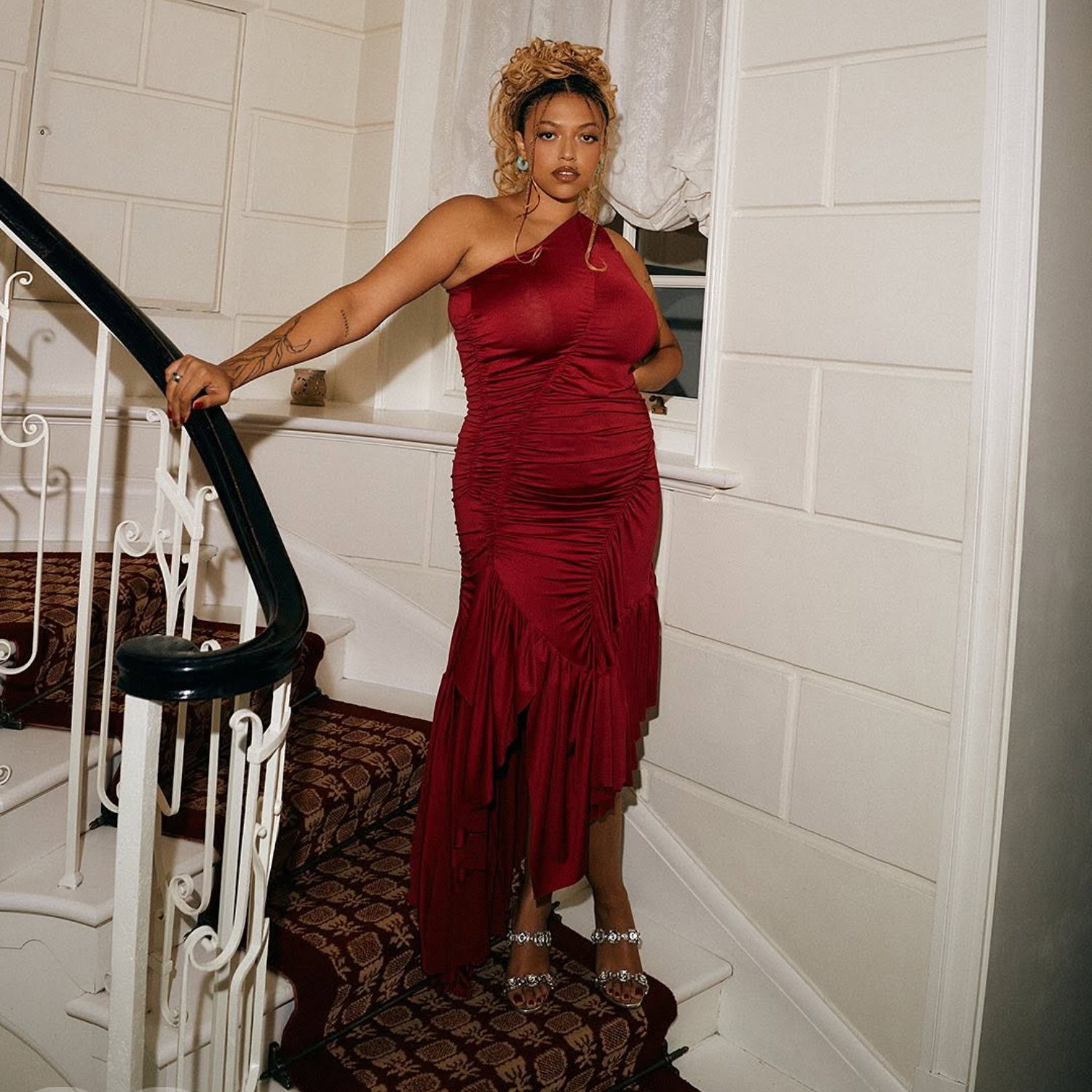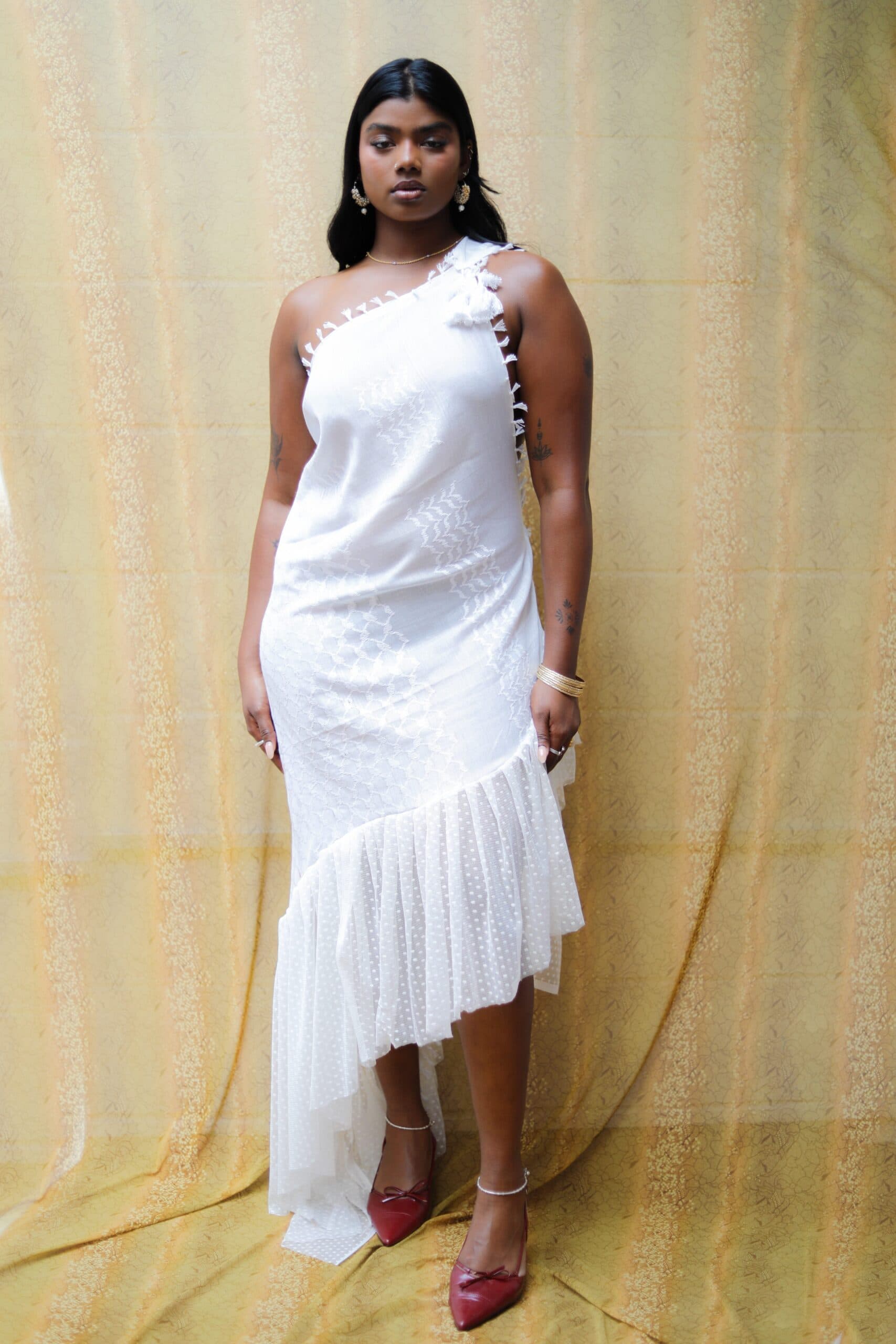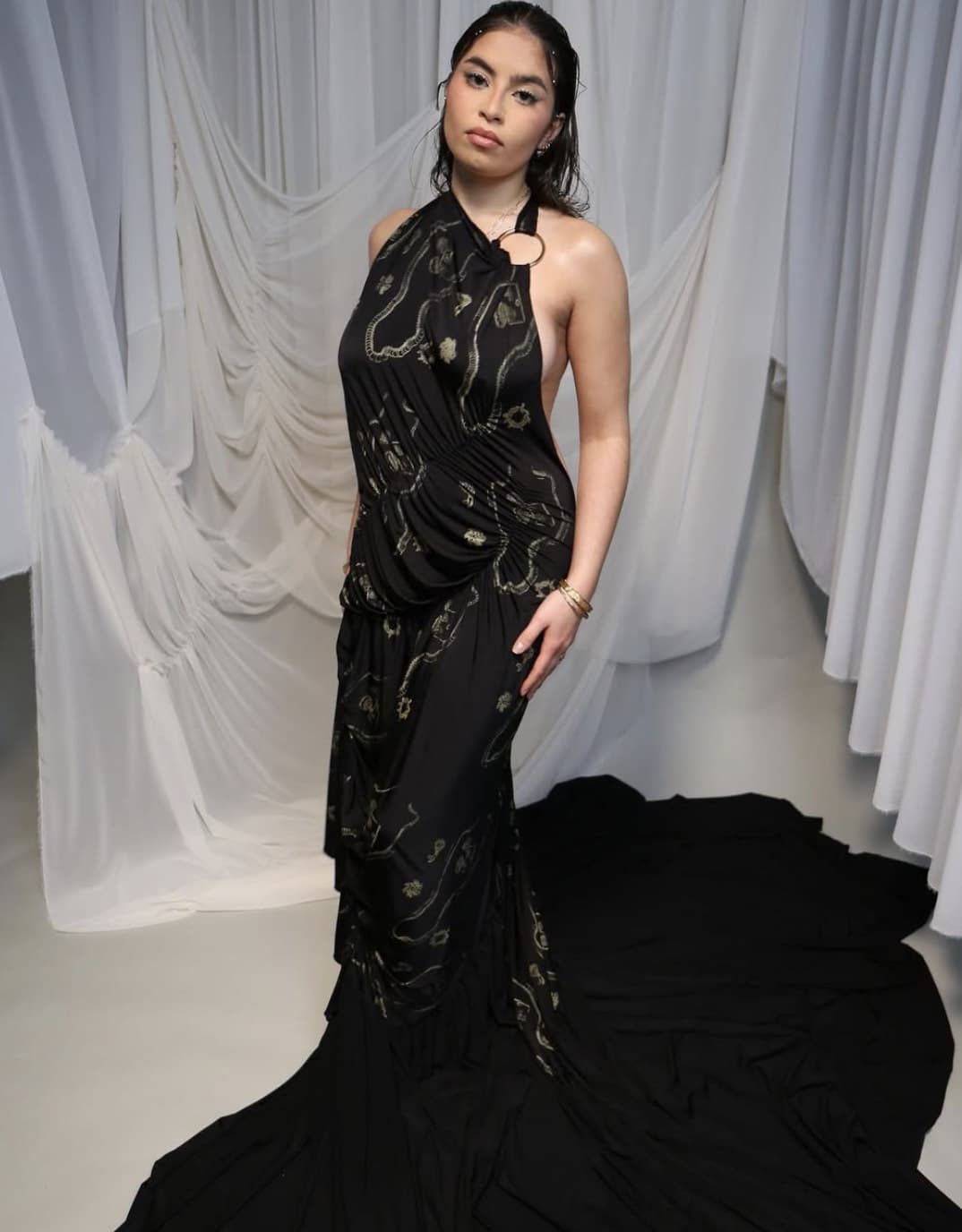Hadiyah Hussain: The TfL train driver slash designer dressing Jorja Smith, DJ Nooriyah and Mahalia

Hadiyah Hussain isn’t afraid to colour outside the lines. At twenty-seven, the East London-born designer and textile artist is creating a new aesthetic, where bold desi prints meet streetwear cuts. The designer’s eponymous brand boasts size-inclusive pieces, Risograph colour printing and signature pleating. It’s an ode to diaspora communities everywhere — which is exactly what keeps Hussain inspired. “I rely heavily on the feeling of nostalgia so nothing gets boring,” she says.
Hussain knew she wanted to be a designer from a young age. Growing up surrounded by other female designers and the rhythmic thrumming of a sewing machine, she credits her love of fashion to the women in her family, who encouraged and nurtured her passions. “My grandmother was my biggest inspiration and she loved my work,” Hussain says. “She was a beautiful designer, making clothes for my mum and aunt, and taught me how to knit.”
Her Pakistani heritage is at the heart of her brand, offering an endless source of inspiration drawn from family archives and cultural identity. “I might look at the same photograph or explore the same theme two or three times and it’ll always have a different outcome,” she explains. Her designs are not just clothing, but a visual representation of memory and cultural fusion.

Hussain’s designs are both playful and take a serious push against western fashion conventions. Her signature pieces often sport the swirl of urdu script, fabric pleating and asymmetrical hems. “I love working with scraps and leftover fabric to create random drapes, pleating and ruching to make custom pieces,” she says. The designer is also planning on incorporating some new traditional techniques into her process soon — specifically “weaving”, “ceramics” and her grandma’s remit, “knitting”.
Inclusivity is also sewn into the fabric of the brand, and Hussain is actively working to dismantle narrow beauty standards and represent what real women look like. “We see a lot of brands celebrate plus size, but plus size in the perfect way, where you have fat in the perfect places,” she says. Instead, Hussain is putting real bodies first. “In a world where we’re always being body-shamed in some aspect, whether too small or too big, celebrating real women and real bodies is very important.”
Going against the grain of mainstream fashion, in not one but two ways, was inevitably daunting — but a viral success gave Hussain some well-earned confidence. It came in the form of a custom piece she created for ‘Be Honest’ singer Jorja Smith in 2023. The look, an asymmetrical draped steely grey dress, went viral online and consequently propelled the brand forwards. “I was really proud of that moment,” Hussain says. “It gave me a big boost of confidence.” Since then, she’s dressed artists Raveena Aurora and Mahalia, and most recently, DJ Nooriyah for her show at the Jazz Cafe Festival in August, where she donned a red keffiyah dress, a fierce union of political and cultural identity. For the twenty-seven-year-old, the two things are inseparable. “Fashion has always been political,” she affirms. “It’s a way for me to express where I stand and how I feel about certain topics around the world or at home here in the UK.”
If her impromptu Internet success was unexpected, her side hustle is even more surprising — Hussain works part time as a TfL train driver. The designer says it’s like living a double life. “It’s like Hannah Montana, only I don’t know if it’s the best of both worlds,” she says. Hussain is one of many Gen-Z artists juggling multiple hats, and doing everything she can to pursue her passion full time. According to a 2024 Glassdoor Report, fifty-seven percent of Gen-Z workers maintain a side hustle to supplement their incomes — almost double the number of Gen Xers. It’s indicative of how the younger generation prioritises creative outlets, autonomy and self-expression. And, although fulfilling, it’s not easy maintaining both jobs. The relentless grind has led Hussain to work seven days a week for five years. “I’m exhausted,” she says candidly. “A weekend off would be sensational.”
But that’s not the only challenge Hussain has faced as an independent designer. A flooded studio, burnout and grief have all tested her resilience. “It does take a toll when it’s all work and no play,” she shares. “I got to a breaking point when I lost two very strong women in my family last year.” This year, she’s consciously shifted towards prioritising self-care and connection to heal and fill up her cup. But that doesn’t mean Hussain is totally slowing down. Her dream would be to have her own London Fashion Week showcase. But, for now, the British-Pakistani designer is focused on nurturing a community, and building a team to grow her brand both with women and for women.

- WriterZahra Onsori




